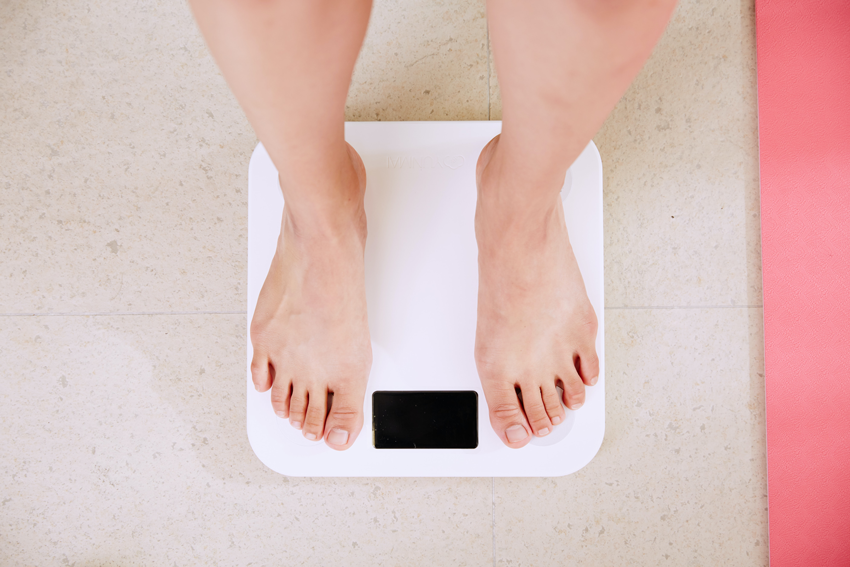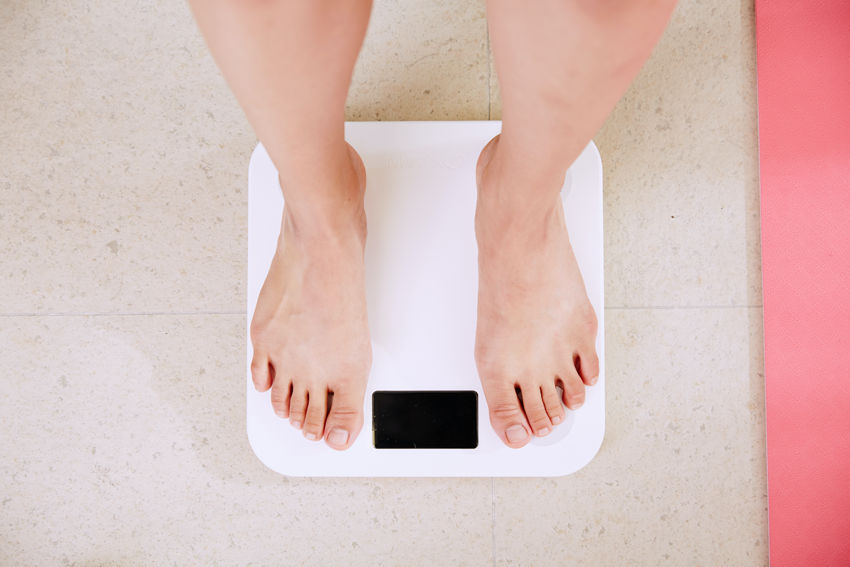Can Semaglutide cause weight loss?
Semaglutide (the active medicine in Wegovy) can indeed cause weight loss.
Whilst it isn’t guaranteed to work for everyone that’s struggling to lose weight, using Semaglutide injections such as Wegovy can help many people lose some of the weight that they haven’t managed to lose with lifestyle changes alone.
Semaglutide may have been developed to treat type 2 diabetes, but patients that were taking it to control their blood glucose levels were experiencing a reduced appetite as a side effect of Semaglutide – which for many, resulted in weight loss.
Because of this, Novo Nordisk (the pharmaceutical company behind Wegovy) decided to put Semaglutide through another round of trials – this time for weight management in those with a BMI of over 30 (or over 27 with a weight-related health condition).
The studies paid off, as Semaglutide was approved as a weight-loss treatment by the FDA in June 2021 under the brand name Wegovy, and at a dosage of 2.4mg per week.

However, there are plenty of people that didn’t need a new trial to tell them that Semaglutide could cause weight loss.
Many people in the UK have been able to use Semaglutide for weight loss for a while now, as some healthcare professionals are able to prescribe it off-label if they think that their patients would benefit from it.
Semaglutide is only prescribed as a weight-loss treatment to patients who need to reduce their BMI but who have struggled to achieve any significant weight loss with diet and exercise alone.
Semaglutide has only just been licensed for weight loss in the UK, so if you’ve been using it for this purpose it means that it’s been prescribed to you off-label.
This doesn’t mean that it isn’t safe for you to take or that it won’t work – it just means that it isn’t indicated for weight management.
Because Semaglutide won’t be available as a standalone weight loss treatment in the UK for some time, using it is the best alternative that we have; it contains the same active medicine and it’s administered in the same way – as well as having a successful history for weight management.
Does Semaglutide suppress appetite?
Semaglutide can cause weight loss because it helps to suppress your appetite.
It works in a very similar way to Saxenda, as the active medicines in both injections belong to the same family of drugs.
However, Semaglutide (the active medicine in Wegovy) has a half-life of 7 days, meaning that you only need to inject it once a week.
On the other hand, Liraglutide (the active medicine in Saxenda) has a half-life of just 13 hours, which is why it needs to be injected daily.
Semaglutide contains a GLP-1 receptor as the active medicine.
Drugs like this are designed to mimic a hormone that our bodies naturally produce after we’ve eaten.
This hormone is what sends a signal to the brain, telling you to stop eating because you’re satisfied, but the natural form of this hormone only has a half-life of around 2 minutes – hence why you might sometimes feel hungry within an hour or so of eating.
This is because natural GLP-1 is easily broken down by enzymes fairly quickly after being released.
However, Semaglutide was developed to be resistant to being broken down by these enzymes, which means it lasts much longer in the body.
It also slows down the digestive process so that any food you’ve eaten stays in your stomach for longer, making you feel more satisfied.

When you first start taking Semaglutide for weight loss, you might notice that you can’t finish your meals or that you feel bloated or sick.
This is often due to the fact that your appetite has reduced without you realising it, and it can often be easy to over-eat in the first few weeks of taking Semaglutide until your body adjusts to it.
Because of this, we recommend looking at the hunger scale, which can help you to become more mindful of your appetite, as well as training you to recognise your body’s natural signals when it comes to food.
We also recommend eating from a smaller plate for the first few weeks as you get used to your new, smaller appetite.
This can help you to visualise a plate full of food, rather than less food on a larger plate, which may subconsciously cause you to become hungry.
How does Semaglutide make you lose weight?
Semaglutide helps you to lose weight by reducing your appetite, meaning that it should be easier for you to reduce your calorie intake, as you shouldn’t be eating as much food.
This is different to other weight loss medications such as Orlistat which work by blocking dietary fat after you’ve eaten.
GLP-1 receptor agonists such as Wegovy and Saxenda reduce your overall appetite, meaning that you’re consuming smaller portions.
This is down to the fact that Semaglutide isn’t as easily broken down by enzymes as the body’s natural GLP-1.
Although these weight loss injections do suppress appetite, you should still be prepared to make lifestyle changes such as choosing low calorie and satisfying foods for the bulk of your diet, as well as reducing the amount of fat that you eat.
Diet adjustments are almost always required when you’re wanting to lose weight sustainably and successfully, as a negative energy balance is required for weight loss.
However, Semaglutide makes this process easier, as it means that you feel more satisfied for longer after eating less food.
Because of this, it helps many people to easily stick to a low-calorie diet without experiencing hunger.
It can also help to reduce cravings, as people are generally less inclined to snack if they feel satisfied or comfortably full.

Semaglutide isn’t a magic fix, and it won’t help you lose weight overnight, but it may make your weight loss journey a little easier by helping you to stick to a low calorie diet in order to obtain a long-term negative energy balance (or, burning more calories than you consume).
How to lose weight with Semaglutide
As we’ve already mentioned, lifestyle changes are still needed in order to lose weight with Semaglutide, but it should help to relieve some of the hunger that’s often experienced by people who reduce their calorie intake for weight loss.
We would recommend that alongside taking Semaglutide, you should also take a look at your current diet and exercise habits to see if there are any areas that could use a change.
For example, cycling to work instead of taking the bus, or even just cutting out a second glass of wine in the evening.
Some people will have more lifestyle changes to make than others in order to lose weight, but that also depends on factors such as genetics, medical history, medications etc.
When taking Semaglutide to lose weight, it’s generally recommended that you plan to eat between 1200-1500 calories a day.
If you currently eat more than this, we’d recommend gradually reducing your calorie intake rather than cutting to 1200kcal straight away.
This is because drastic changes can often be a shock to the system, whereas gradual changes are easier to adjust to over time and adopt as new habits.
Most of your diet should be made up of low-calorie and low-GI carbohydrates alongside plenty of lean protein, as both of these types of foods can also contribute towards you feeling more satisfied for longer.

Another key element of losing weight with Semaglutide is increasing the amount of exercise that you do.
This doesn’t mean being stuck in a gym on a treadmill, it could include walks in the countryside or your local neighbourhood, swimming, getting your mates together for a game of rounders, or even just moving your body more than normal if you struggle with mobility – all of these are great steps towards a healthy lifestyle that should sustain long-term weight loss.
Another important part of losing weight is making sure that your portions sizes weigh up (if you’ll pardon the pun).
Weighing and measuring out your food can be one of the key aspects in maintaining a low-calorie diet.
It can be surprisingly easy to add an extra couple of hundred calories onto your daily intake without even noticing if you don’t weigh your food.
Portion control is still important even if your appetite is reduced, as it can still be easy to consume more calories than your body needs, which can hinder your weight loss.
How much weight can you lose on Semaglutide?
It’s difficult to quantify exactly how much someone could lose on Semaglutide, as this depends on a lot of factors such as underlying health conditions, starting weight, any other medications you may be taking, and various other things, but we do have data from the STEP trials that were carried out when Novo Nordisk were looking at Semaglutide for weight loss.
In phase 3 of the STEP trials (STEP 3) 611 people took part – all of whom had a BMI of over 30 but did not have diabetes.
Some of these participants took Semaglutide 2.4mg weekly, whilst others took a placebo over 68 weeks.
The group that took Semaglutide lost an average of 16% of their starting weight by the end of 68 weeks, whilst the placebo group managed just a 5.7% loss.
Furthermore, 86.6% of the Semaglutide group achieved a loss of at least 5% of their starting weight, whilst just 47.6% of the placebo group achieved the same milestone.
In phase 4 of the STEP trials (STEP 4), 902 participants were involved.
All participants took Semaglutide 2.4mg weekly for the first 20 weeks of the trial.
Some carried on with the Semaglutide 2.4mg whilst others were switched to a placebo for the remaining 48 weeks.
The results from STEP 4 showed that the Semaglutide group lost a total of 17.4% of their starting weight (average) whilst the placebo group lost just 5% of their starting weight.
This supports a case for Semaglutide being taken long-term rather than as a short-term treatment, but as obesity is often a chronic condition, it makes sense to provide longer-term support.
There’s currently no guidance to say how long someone should say on Semaglutide for when using it for weight loss, but you and your prescriber should discuss this at regular intervals depending on your progress.
Most people that use Semaglutide for weight loss are able to lose at least 5% of their body weight within 12 weeks of taking the treatment (not including the titration period).
This is currently the criteria for continuing with most weight loss medications that are available in the UK.
People that do achieve a 5% loss in the first 12 weeks are able to continue with Semaglutide, but those who don’t are often offered other advice, such as alternative weight loss medications or even surgical procedures to help with reducing weight, such as bariatric surgery.
One thing that we will say about all methods of weight loss is that it can be easy to fall into a trap of comparing your own journey with someone else’s.
Nobody else lives in your body, and nobody knows it better than you do. As long as you’re doing what’s right for you and making healthy lifestyle changes, you’re making incredible progress.


















